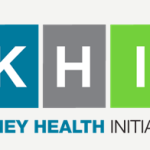Here’s a roundup of nephrology news over the past few weeks. Click on the headlines to browse the articles. Or, if you’ve discovered other newsworthy items that may be of interest to our team or your nephrologist peers, we invite you to please share news links in the comments.
Court prohibits CMS from implementing rule on 3rd party payments
The United States District Court of the Eastern District of Texas issued a preliminary injunction prohibiting the Centers for Medicare & Medicaid Services from implementing an interim final rule.
FDA approves Amgen’s Parsabiv to treat secondary hyperparathyroidism
The U.S. Food and Drug Administration has approved Amgen Inc.’s Parsabiv (etelcalcetide) to treat secondary hyperparathyroidism in adult patients with chronic kidney disease on hemodialysis. Parsabiv is the first therapy approved for this condition in 12 years and the only calcimimetic that can be administered intravenously by the dialysis health care team three times a week at the end of the hemodialysis session.
Kidney function in stroke patients associated with short-term outcomes
A routine blood test that measures kidney function can be a valuable predictor of short-term outcomes for stroke patients, according to a study led by a neurologist at Wake Forest Baptist Medical Center.
With CMS rule out, who will protect the patients?
On Jan. 25, a federal court in Texas prohibited the Centers for Medicare & Medicaid Services from placing new regulations on dialysis providers that pay the premiums for individual health plans issued as part of the Affordable Care Act.
High-volume hospitals recover more transplantable organs per donor
A greater number of transplantable organs are recovered from deceased donors managed at high-volume hospitals, a new study finds.
CKD patients satisfied with nurse-led care
For patients with chronic kidney disease (CKD), patient satisfaction is high with care at nurse-led clinics, according to a study published online in the Journal of Renal Care.
Bundles and caps: What are you wearing?
Dr. Terry Ketchersid takes a look at the debate over whether or not US health care would be better off in a bundled payment environment or in a capitated payment environment. This debate is receiving a lot of attention within the context of migrating from a fee-for-service environment to value-based reimbursement.
Non-dialysis CKD patients have high out-of-pocket expenses
Non-dialysis dependent chronic kidney disease (NDD-CKD) patients are burdened by higher total medical, dental, and vision expenses than even cancer and stroke patients, and they spend more out of pocket, a new study finds.
Higher serum levels of klotho protein may protect kidney function, study finds
Higher levels of the klotho protein may protect the kidney from declining function, a new study reports. These findings suggest that klotho may serve as a potential therapeutic target for the prevention and treatment of chronic kidney disease (CKD).
Skin’s sodium content linked to heart problems in kidney disease patients, study shows
Sodium intake may be linked with the changes that occur in the heart’s left ventricle of patients with chronic kidney disease (CKD). Interventions that reduce sodium intake, such as reducing the use of salt, might improve cardiovascular outcomes in these patients.
Depression often undertreated in kidney disease patients on chronic dialysis
Patients on chronic hemodialysis due to kidney failure often suffer from depression but they frequently show no interest in modifying or starting anti-depressant therapy, and specialists are often unwilling to prescribe anti-depressants, a study found.
Mobile health: Growing engagement and new responsibilities
The future for mHealth looks rosy. But with mobility comes new responsibility for privacy and security.
Harvard study reviews impact of Affordable Care Act in chronically ill patients
The Affordable Care Act (ACA) has been evaluated in a new research study regarding its impact in Americans living with chronic diseases, like chronic kidney disease (CKD), and was found to have been effective at providing insurance coverage and improving access to medical care for many, but not for all those in need.
Device emulates human kidney function
Instead of running tests on live kidneys, researchers at Binghamton, University State University of New York have developed a model kidney for working out the kinks in medicines and treatments.
Elderly are frequently hospitalized due to their age-associated organ degeneration, the presence of co-morbidities, and their susceptibility to adverse insults. Alterations in functional status often occur during hospitalization, and the degree of functional decline can parallel the severity of illnesses.
Salt triggers changes in heart structure among chronic kidney disease patients
A research team from the University of Erlangen-Nuremberg provide insights into the causes for change in the heart’s structure among people with chronic kidney disease (CKD).
Quality benchmarks: How to estimate your MIPS quality score
Now that the benchmarks are finally here, clinicians can better understand how to select their measures and somewhat predict their MIPS quality score.
Source of biomarker identified for chronic kidney disease
Bone marrow-derived cells are the source of suPAR—a protein recently identified as both a reliable marker for chronic kidney disease and a pathogen of the often deadly condition.
Image from www.canstockphoto.com





Leave a Reply